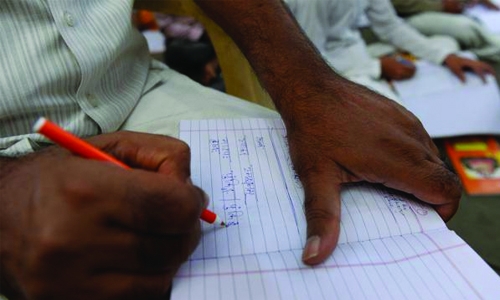India's Sanskrit speakers seek to revive 'dead' language
In a tiny flat in a rundown alley in New Delhi, Rakesh Kumar Misra is working against the odds to bring India's ancient Sanskrit language to the country's millions.
The 4,000-year-old classical language was traditionally used by Brahmin intellectuals and Hindu priests. Rarely spoken as a mother tongue in India, Sanskrit is often dismissed as a dead language.
But Misra is undeterred, spending up to 12 hours a day hunched over his computer, translating and writing articles for a weekly 16-page newspaper in the script.
"My aim is to take Sanskrit to the masses, to make it accessible to everyone," Misra, who has a masters in Sanskrit studies and sees the language as indelibly linked to India's heritage, told AFP.
Hopes of a Sanskrit revival, long pushed by Hindu hardliners, have been rising since India's Hindu nationalist Prime Minister Narendra Modi stormed to power at last year's general election.
Several ministers, although not Modi himself, took an oath of office in the revered language and a national "Sanskrit week" was later declared to promote its teaching in schools.
The first Sanskrit movie made in more than two decades (and only the third ever) was shown at a leading film festival in November in the tourism state of Goa.
Vinod Mankara, director of "Priyamanasam", about a 17th century-poet from the southern state of Kerala, said he hoped to secure government help to show the film overseas to "mesmerise foreigners" with the language.
"It's been my desire from long back to propagate the beauty of the Sanskrit language," he told AFP.
Related Posts

